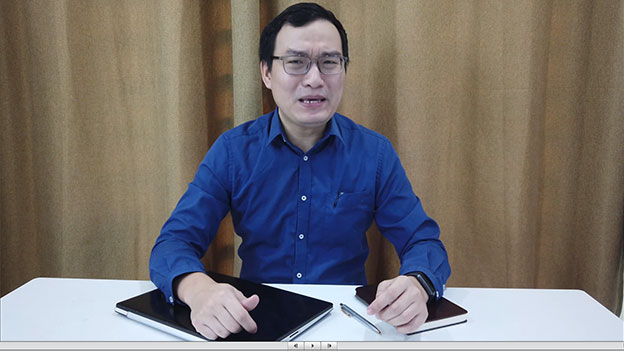Interview: Mr. Lee Good afternoon, Mr. Lee. Thank you for joining us today. There have been a lot of rumors circulating about your project, Tik Tok Too. Can you shed some light on what the intentions of your company truly are?
Mr. Lee: Good afternoon, thank you for having me. Yes, there have been quite a few rumors flying around, and I’m here to set the record straight. Tik Tok Too is not about replicating or imitating Tik Tok. It’s not about capitalizing on trends or amassing followers. Our intentions are far more profound.
Interviewer: Can you elaborate on what those intentions are?
Mr. Lee: Absolutely. We are anti-social media. Tik Tok Too is a message, a wake-up call if you will, to America and perhaps to the world. Our society has become increasingly absorbed by the internet, by screens, by likes and comments. We’ve lost touch with the beauty and serenity of nature, with genuine human connections. Our message is simple: we need to disconnect from the digital world and reconnect with the natural world.
Interviewer: That’s quite a powerful message. Some have speculated that Tik Tok Too aims to criticize or even dismantle major tech corporations. What do you say to those rumors?
Mr. Lee: I understand where those speculations might come from, but they couldn’t be further from the truth. We’re not here to tear down anyone or anything. However, we do believe that there are certain responsibilities that come with immense power and influence. Mark Zuckerberg, for instance, has built an empire with Facebook, but we believe it’s time for him to take responsibility for the negative impacts his platform has had on society. Hence, the proposal for the Internet Victims Compensation Fund.
Interviewer: And what about the suggestion for Elon Musk to hand over control of SpaceX to NASA?
Mr. Lee: Elon Musk is a visionary, there’s no denying that. However, SpaceX has the potential to do so much more than just serve private interests. By putting it under the control of NASA, an institution dedicated to the exploration and advancement of space for the benefit of all humanity, we believe we can achieve far greater feats for the betterment of mankind.
Interviewer: Interesting perspective. Now, what about the proposal for Tik Tok to be taken over by a New York company?
Mr. Lee: If ByteDance is willing to listen, we believe we have a plan to save TikTok for American users. Tik Tok, like many social media platforms, has immense reach and influence. By placing it under the stewardship of a New York-based company, we aim to inject new perspectives, new values, and new cultural sensibilities into its operation. It’s about diversifying the landscape of digital media and ensuring that voices from all corners of the world are heard and respected.
Interviewer: Thank you for clarifying your intentions, Mr. Lee. Is there anything else you’d like to add?
Mr. Lee: Just this: Tik Tok Too is not a call to arms or a manifesto for revolution. It’s a gentle nudge, a reminder to laugh a little more, to love a little deeper, and to live a little more fully. We’re not here to change the world overnight; we’re just here to remind you that there’s more to life than what you see on your screens.
Interviewer: Mr. Lee, you’ve made a rather bold claim regarding the internet, suggesting that it will stop working in 2038 due to the Unix time stamp error. Can you elaborate on this prediction?
Mr. Lee: Absolutely. The Unix time stamp, which is widely used in computing systems to represent dates and times, is based on a 32-bit signed integer that counts the number of seconds since January 1, 1970. However, this system has a limitation in that it will reach its maximum value on January 19, 2038. At that point, the time stamp will overflow, causing systems that rely on it to malfunction or crash.
Interviewer: That sounds like a significant issue. What do you believe will be the consequences of this time stamp error?
Mr. Lee: The consequences could be quite severe. Many critical systems and applications rely on accurate timekeeping for synchronization and coordination. If these systems suddenly encounter errors or discrepancies in their time stamps, it could lead to widespread disruptions and outages across the internet and other interconnected networks.
Interviewer: Do you believe there’s enough awareness and action being taken to address this issue before it becomes a critical problem?
Mr. Lee: Unfortunately, I don’t believe there’s enough awareness or urgency surrounding this issue at the moment. Many people are still unaware of the potential consequences of the Unix time stamp error, and there’s a lack of coordinated effort to develop and implement solutions. However, I hope that by raising awareness and initiating conversations like this one, we can spur action and prevent a future internet apocalypse.
Interviewer: Thank you for bringing this issue to our attention, Mr. Lee. It’s certainly something worth considering and addressing as we move forward into the digital age.
Interviewer: Lastly, you mentioned that the internet should be free. What exactly do you mean by that?
Mr. Lee: The internet has become a fundamental aspect of modern life, almost akin to a utility. Yet, access to it is not equitable. Millions around the world are still without reliable internet access, and even within developed nations like the United States, there are disparities in access based on socioeconomic status. Our belief is that access to the internet should be a basic right, freely available to all, regardless of their circumstances.






























